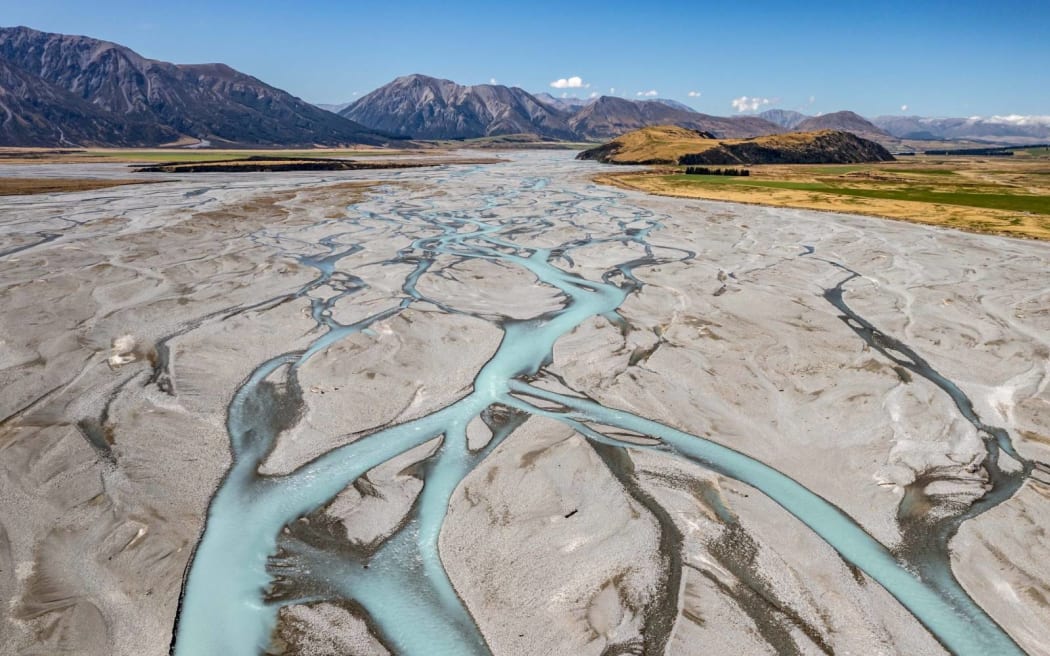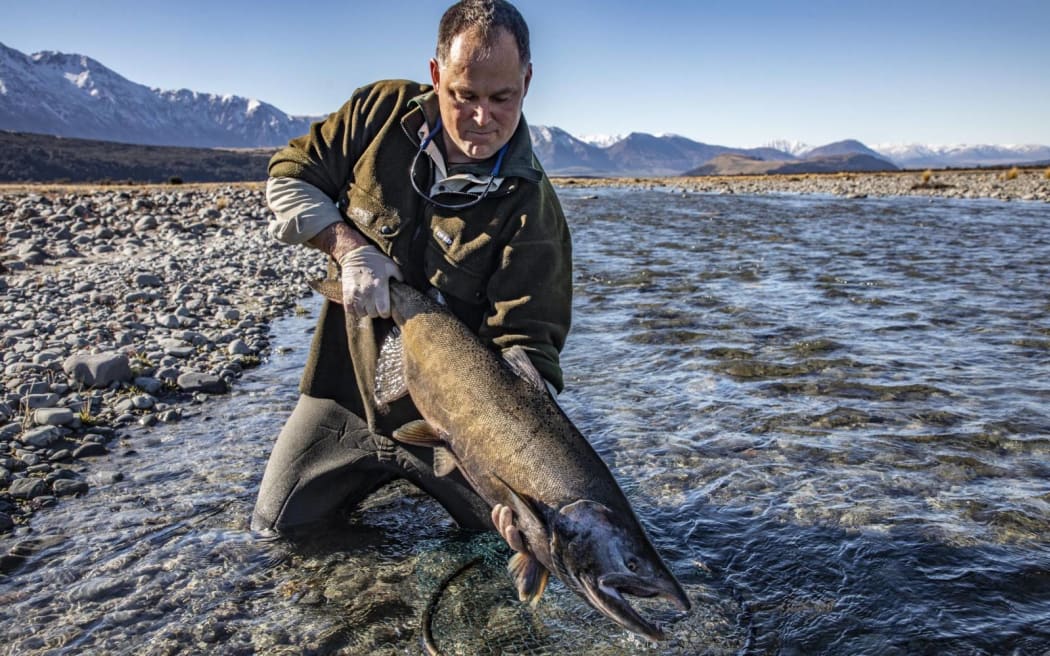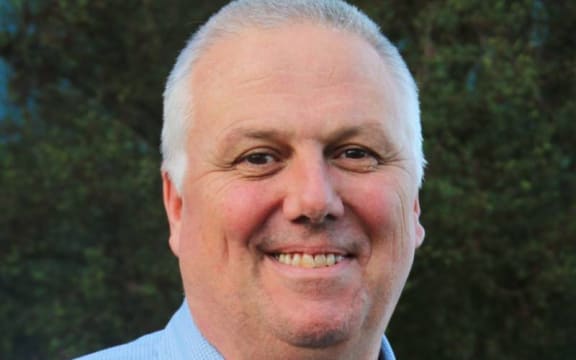
Fish & Game, Environmental Defence Society and several other parties have been engaged with ECan for about two years over who is responsible for monitoring and managing the Rakaia Water Conservation Order. Photo: Fish & Game NZ / Supplied
It was hoped withdrawing a court case trying to work out who is responsible for looking after a key Mid Canterbury waterway might finally put the contentious issue to bed.
But it appears to have sparked a fresh war of words, with environmental groups claiming Canterbury's regional council is being misleading.
The drama is over whether Environment Canterbury is responsible for enforcing a Water Conservation Order, the highest level of protection that can be afforded to any water body, for the Rakaia River.
It seems a simple question, that the regional council - which has the jurisdiction over the region's major waterways - would be in charge of enforcing the 1988 Rakaia Water Conservation Order (WCO).

But it's a question that has required a legal process to determine the answer.
A WCO is the national park equivalent for water bodies, with only 15 lakes and rivers with one in New Zealand.
Environment Canterbury filed an application in February for declarations in the Environment Court as to whether it had legal obligations to monitor and report on the conservation order.
A declaration by the Environment Court is required if matters under the Resource Management Act are unclear.
ECan's position is that it does not, but environment groups believe they do have legal obligations. The Environment Court was set to determine who was right.
That was until ECan announced this week it had withdrawn its request for the Environment Court to clarify its role.
Chief executive Stefanie Rixecker said the declaration was withdrawn on 10 November as there was no longer disagreement over the council's functions, powers, and duties under the RMA.
"We're glad to have resolved questions about our responsibilities as a regulator."
However, some believe those questions remain unanswered.
North Canterbury Fish & Game Council chief executive Rasmus Gabrielsson has criticised ECan's announcement as misleading, saying the matter remains unresolved.
Fish & Game, the Environmental Defence Society, and several other parties have been engaged with ECan for about two years over who is responsible for monitoring and managing the Rakaia Water Conservation Order, he said.

North Canterbury Fish & Game Council chief executive Rasmus Gabrielsson undertaking DNA sampling of salmon in the upper Rakaia. Photo: Supplied
The parties agreed to seek declarations from the Environment Court on legal questions, with ECan being the initial applicant for the declarations, Gabrielsson said.
"That makes sense because they manage the Rakaia River catchment's land and water resources under the RMA.
"ECan's decision to withdraw from the [legal] proceedings is disappointing and difficult to understand."
He claimed there has been no attempt by ECan to consult with other parties about a decision to withdraw and "no explanation given", apart from a statement released on Monday saying that issues over ECan's statutory responsibilities as a regulator had been resolved.
"This is not accurate as the core questions about the full extent of ECan's statutory responsibility for monitoring and managing the Conservation Order remains unanswered," Gabrielsson said
"There might be some additional delay and cost due to the ECan decision but Fish & Game intend to press ahead with the court proceedings."
Fish & Game and EDS are looking at the options to continue legal proceedings, he said.
"It is critically important to determine who is responsible for the Conservation Order as a first step in addressing the Rakaia River's environmental problems."
Science director Dr Tim Davie said ECan's obligation as a regional council is to ensure its regional plans are consistent with the WCO - to not grant any water, coastal or discharge permit that would be contrary to any provision of the WCO, and to ensure that any consent granted imposes necessary conditions to ensure the provisions of the WCO are upheld.
"We monitor compliance with these consent conditions, otherwise, we are not responsible for enforcing observance of the WCO in general."
The declaration was sought to clarify ECan's existing approach to enforcing the WCO, and that it did so on behalf of several interested parties, he said.

Environment Canterbury science director Dr Tim Davie. Photo: Supplied
Following court-facilitated conferencing, all parties agreed that the statements filed by the council for the declaration proceedings were correct as stated, he said.
"As there is no longer disagreement that the council has the functions, powers, and duties [listed above], the application was withdrawn on legal advice.
"Given the way we understand our role in enforcing the WCO has not changed, we do not expect to change the way we do enforcement as a result of this process."
Rixecker acknowledged there is still concern from some groups as to whether the outstanding characteristics of the Rakaia River are being sufficiently protected.
"We all value the outstanding natural features of this river.
"Environment Canterbury will continue to engage with interested parties, including Ngā Rūnanga, to understand any concerns about the health of the Rakaia River and to explore what further actions are required to ensure its protection."
While ECan believes the process has reiterated the status quo, the concerned groups have signalled they will press on with getting a determination from the Environment Court.
What's a WCO?
Rakaia's National Water Conservation, which came into force in October 1988, acts like a national park status for a river.
The WCO set quantity and flow rates for the main stem of the river but also required the Wilberforce catchment, including the Harper River, to be retained in its natural state.
An amendment was adopted in 2013 allowing Trustpower (now Manawa Energy) to store water in Lake Coleridge, where it has a hydroelectric power scheme, for irrigation.
What's the issue?
Environmental groups believe that there has been a lack of monitoring and enforcement of the WCO and that irrigation is taking water from the river resulting in lower flows.
Questions have been raised over ECan's enforcement of the WCO, with ECan in turn questioned if it had the legal requirement to enforce it.
With mounting pressure from environmental groups for action, media outlet Newsroom ran a series of stories including a leaked, unpublished report by a senior scientist that suggested the WCO was being breached, and consented water-takes exceeded.
In response, ECan asked the Environment Court whether it is legally responsible for enforcing it.
ECan's position is that it must ensure its regional plans, permits, and consents are consistent with the WCO, and it must monitor their effectiveness and efficiency, but its function isn't monitoring compliance, gathering information on, or keeping records under the WCO.
Concerns have been raised by groups like Fish & Game that ECan was not monitoring compliance of the WCO, despite significant alterations to land and water use in the catchment, and the result is declining river health.
Fish & Game believes that regional councils are statutorily responsible for implementing WCOs and that regional councils were not meeting these requirements.
Who is involved?
The parties involved in the process also included Manawa Energy, Fish & Game, Environmental Defence Society, the New Zealand Federation of Freshwater Anglers, the New Zealand Salmon Anglers Association, the Ministry for the Environment, Barhill Chertsey Irrigation, Dairy Holdings, Rakaia Irrigation Limited, Central Plains Water, and Te Rūnanga o Ngāi Tahu, Te Rūnanga o Arowhenua, Te Taumatu Rūnanga and Te Ngāi Tūāhuriri Rūnanga.
Local Democracy Reporting is Public Interest Journalism funded through NZ On Air.

